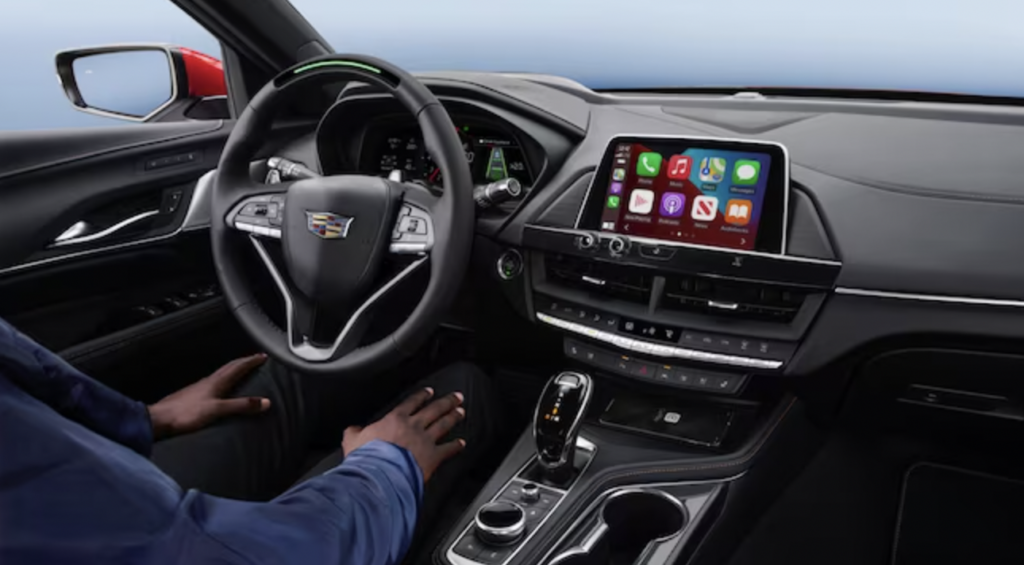Accurate and reliable GPS is at the heart of many advanced driver assistance systems (ADAS) and autonomous vehicles (AVs), but system vulnerabilities in receivers could prevent the technology from realising its full potential. Challenges range from the everyday annoyance of reflection in urban centres to malicious cyber attacks. As vehicle-to-everything (V2X) connectivity matures, these systems will require a higher degree of protection.
Fooling the system
GPS receivers struggle to produce accurate location estimates due to a number of factors. Reflection is one of the most common. Here, the signal has bounced off objects along its path, such as buildings or mountains. It’s often this sort of obstruction that impacts GPS accuracy in city centres. “Reflection causes GPS to misbehave completely, causing huge errors, from tens of metres up to 100m even,” says Manuel Del Castillo, Vice President of Sales and Development at GNSS specialist FocalPoint. “If you are computing a position that is wrong by a block, it becomes totally untrustworthy.”
Another source of problems is jamming, either caused by internal car components, generally known as electromagnetic interference (EMI), or intentionally by a malicious actor. “Jamming involves adding radio frequency noise at a very high volume. It’s like a loudspeaker shouting at you while you are trying to listen to music,” suggests Del Castillo. It affects the receiver by not allowing it to compute an accurate position.
The least common but potentially most dangerous threat comes from spoofing. This involves sending false but realistic GPS or GNSS signals to the receiver. “You are basically reproducing signals with the wrong information, leading you to compute a position somewhere else. That totally confuses ADAS or autonomous driving systems,” he notes.

Recent research from FocalPoint and YouGov found that more than 80% of UK and US consumers are concerned about the risk of GPS spoofing affecting the safety of ADAS and AVs. 84% of respondents said they were most concerned about spoofing increasing the risk of an accident to AV users or harming other road users and pedestrians. These findings serve as a warning for automakers, and if concerns go unaddressed, they could impact adoption rates of safety-critical systems moving forward. “Nobody wants to hand over control of their car to a system that can be fooled,” Del Castillo tells Automotive World.
System immunity
The good news is there are ways to protect receivers from all such untrustworthy signals. From FocalPoint’s perspective, the only trustworthy signal is the line-of-sight signal from a satellite. The company asserts that its Supercorrelation technology eradicates risk “from the origin” by making the GNSS receivers immune to any inappropriate signals. Its solution takes the form of S-GNSS Auto, a software product that can be installed as part of an update. Supercorrelation allows for line-of-sight long coherent integration, enabling GNSS receivers to reject unwanted signals and noise by focusing exclusively on the line-of-sight signal.
This solves all the usual challenges around reflection and jamming, as well as spoofing. “Spoofing signals come from a different angle, not the true line-of-sight angle, depending on where the spoofing device is located—in a building or on a window,” he explains. “Those are ‘wrong’ angles, and therefore our software removes the signals. In a sense, the receiver basically becomes immune to spoofing.” The system not only detects the presence of a spoofing attack but can also help locate where the attacker is, generating the latitude and longitude of the spoofing source and potentially reporting it to the authorities
“Nobody wants to generate a lot of fear that GNSS systems can be spoofed, but on the other hand, it is also nice to hear that there is a solution for this that can be installed as a simple software update,” Del Castillo points out.
Traditional GNSS receivers could detect jamming and warn the user but not prevent or remedy it once it occurred. For spoofing, existing approaches mitigate the impact after the fact, but the system’s positioning engine would still receive the ‘bad’ signals along with the good and need to be smart enough to detect that some looked off. “With a little bit of luck and some hints, the system could cope with a spoofing attack, but it’s a much more unreliable way of countering spoofing,” he says. “All the fake signals still go through, and only in the very last moment does the positioning engine decide to discard or not discard some of them.” FocalPoint’s approach simply stops the untrustworthy signals from getting through in the first place
A game changer
Spoofing today is not common, with most applications taking place in regions of conflict and war scenarios, where it may be used to confuse the receivers of the opposing side. “Today, that includes areas around Ukraine, along the border with Poland, and around Israel, but not someplace like London or Zurich.”
Generally speaking, successfully spoofing a system is not an easy thing to do. “It’s super complex to generate a signal that could potentially make the receiver believe that it is somewhere else,” Del Castillo adds. “It requires a deep understanding of how the systems work.”

Spoofing may not be a widespread problem for everyday drivers at the moment, but it could become a serious one in the future, particularly as autonomy advances and V2X connectivity emerges. “Someone could generate chaos in a smart city environment where cars send their location to other vehicles and smart infrastructure,” he warns. “This is a potentially very unsafe situation, and it only needs to happen once to generate bad press for automated and autonomous driving.”
The FocalPoint/YouGov study found that just under half of respondents would be influenced in their vehicle purchase choice by the spoofing mitigation capabilities included. FocalPoint’s solution, according to Del Castillo, is “gaining a lot of traction” with automakers. It has been working with General Motors since 2023 and counts GM Ventures among its strategic investors. While S-GNSS Auto is not yet in any production car, it could find its way into the Super Cruise or upcoming Ultra Cruise systems in the next few years.
Del Castillo describes it as a “game changer” for the industry. While fully connected cities and autonomous vehicles may be years out, the benefits of a more reliable and trustworthy signal and a GPS immune to reflection bring undisputable near-term benefits. As he elaborates: “Up till now, reflection meant you could not rely on GNSS in a city. For any location-based service in an urban environment, this is revolutionary technology.”


